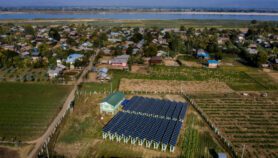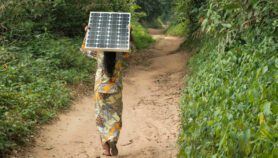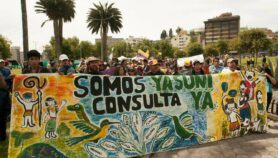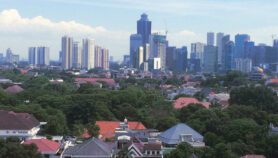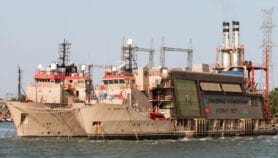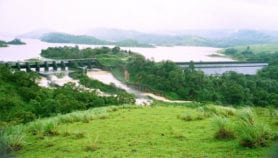Send to a friend
The details you provide on this page will not be used to send unsolicited email, and will not be sold to a 3rd party. See privacy policy.
Rio+20 must launch SDGs to guide countries through complex development challenges, argues Colombian ministry official Paula Caballero Gómez.
Despite countries' growing commitment to alternative energy and more efficient use of resources, twenty years after the Earth Summit sustainable development is still seen by many as an idea rooted in environmental concerns.
This creates a fundamental disconnect between proponents of sustainability and those who, leaving environmental concerns aside, claim that commitment to human wellbeing and poverty eradication demand exclusively socioeconomic responses.
The proposals for adopting a suite of Sustainable Development Goals (SDGs) — potentially a key outcome of the UN Conference on Sustainable Development (Rio+20) next month (20–22 June) — can address this disconnect by articulating complex development challenges.
SDGs are about metrics, which have proven their importance as drivers of public policy in addressing critical issues such as rural sanitation and child mortality — look at the impact of the Millennium Development Goals (MDGs), or ecosystem valuations. If properly developed and designed, SDGs will doubtless play a similarly key role in driving sustainability.
But the value of SDGs doesn't end there. One of their most crucial contributions will be to clarify how the three dimensions of sustainable development — economic, environmental and social — depend on each other.
Interrelated challenges
Colombia is promoting SDGs together with Peru and the United Arab Emirates. But these governments do not have their own list of priority SDGs. A preliminary set of core issues has been drafted based on extensive international consultation and recommendations from many sources.
Proposed global goals around which SDG targets, indicators and implementation methods could be focused:
>Energy for sustainable development
>Sustainable and resilient cities Healthy and productive oceans
>Enhanced capacity of natural systems Improved efficiency and sustainability in resource use
>Enhanced employment and livelihood security
Colombia's vision of the SDGs is based on the fact that economic growth, environmental protection and social welfare are deeply interrelated.
Take global food security, for example: it is about far more than merely reducing hunger, which is one of the main targets of MDG 1. Achieving it will demand a long-term strategy that incorporates issues as diverse as biofuels, commodity prices, crop genetic diversity, desertification, and safeguards for traditional livelihoods, to name a few.
Our societies and economies are not ready for the multidisciplinary approaches required to address the economic, environmental and social dimensions of food security. But a SDG could help forge the way by outlining tangible, key elements of sustainable and sustained food production.
The MDGs focused on the final result: ending hunger. SDGs would focus on the drivers that need to be tackled to achieve that final outcome.
The proposed SDG on water highlights the need for such an approach, as well as the difficulties of making the case for it. Targets on water are often labeled 'environmental', despite the fact that economic productivity and human wellbeing depend on it.
For example, irrigation is key to the production of most of the world's food, and sanitation is the cornerstone of health. But a surprisingly large number of people fail to see these simple connections. That ecosystems also need water, and that ecosystem services need protection, does not make water an environmental issue — rather, it highlights the interconnections of human and planetary health.
There are also inter-linkages between different SDGs. These are just as important as the more comprehensive perspective on a given issue that each SDG can provide.
For example, 20 per cent of animal protein worldwide comes from the oceans, so healthy oceans are a vital component of global food security. And millions of children die every year from acute respiratory infections and other diseases related to environmental hazards.
A tool for change
In a world where natural resource scarcity and populations are rising, and demands from the expanding middle classes are growing, policy decisions will involve difficult trade-offs. Governments need to identify 'no-regret options' that deliver benefits across a range of sectors or issues.
SDGs can help decision-makers do this. They can point to both constraints and opportunities for long-term planning and investment, and enable policymakers to justify their actions even if they entail higher costs than business as usual.
Rio+20 can, and should, play a decisive role in launching the SDGs as a key component of a global policy framework beyond 2015. The process will require expert guidance and input, but the selection of thematic areas is a political decision that should be made at Rio.
The development of each SDG requires quantitative, time-bound targets and a dashboard of descriptive indicators that countries can put into practice according to national circumstances — a one-size-fits-all approach would obscure specific priorities and needs.
SDG indicators will need to be tailored to different national capacities, institutional structures and mandates if they are to catalyse domestic efforts towards more integrated approaches to sustainability.
In 20 years, the world has changed at a pace few could have predicted. There are new geopolitical realities and pressures on natural systems that mean business as usual is no longer an option.
SDGs can be a tool to help ensure that policies guide change and manage resources in a way that keeps human development options open. That is not an environmental agenda, but it is one that factors in social and economic, as well as environmental concerns.
Paula Caballero Gómez is Director of Economic, Social and Environmental Affairs, Ministry of Foreign Affairs, Colombia. For further information on the SDGs contact [email protected].
This article is part of our coverage of preparations for Rio+20 — the UN Conference on Sustainable Development — which takes place on 20-22 June 2012. For other articles, go to Science at Rio+20



